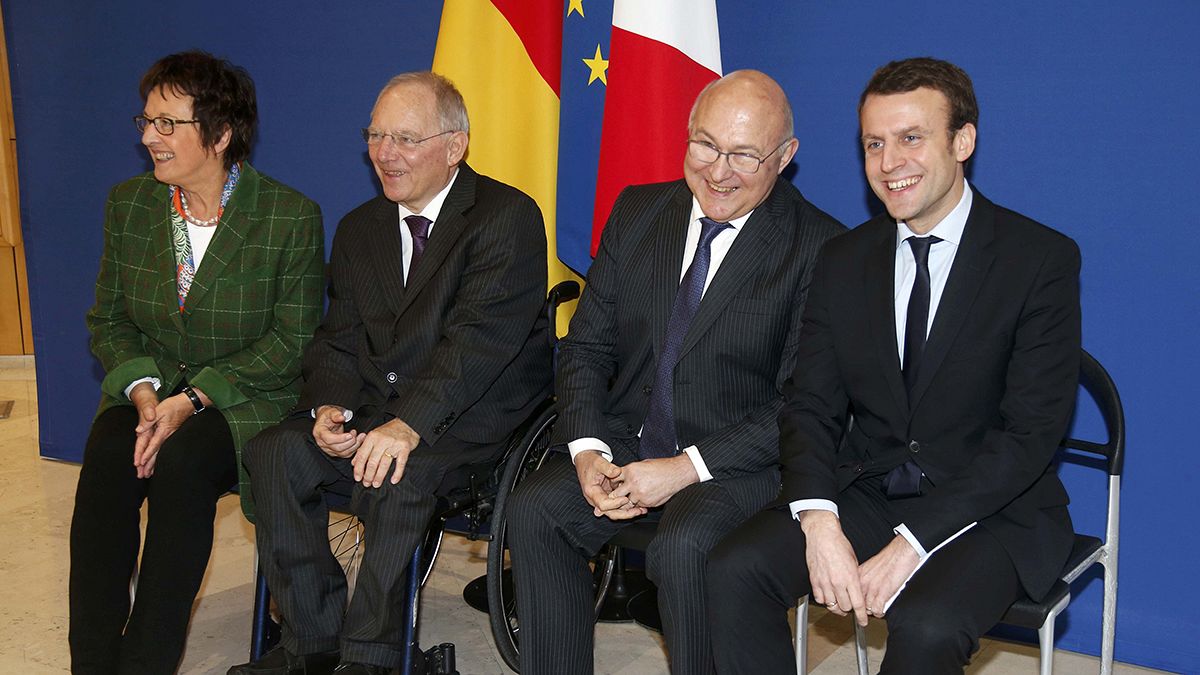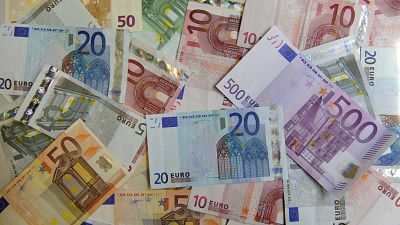Even as stock market indexes slid further, French and German finance chiefs meeting in Paris warned against over-reacting to signs of economic weakness.
Even as stock market indexes continued to slide French and German finance chiefs meeting in Paris have been talking up the world economy and pondering how to return the eurozone to sustained growth.
The German and French finance ministers Wolfgang Schaeuble and Michel Sapin discussed strengthening the monetary union in Europe while Bank of France Governor Francois Villeroy de Galhau and his Bundesbank counterpart Jens Weidmann warned against over-reacting to signs of economic weakness.
Weidmann said he did not expect a sharp deterioration in the Chinese economy: “The volatility of the financial markets that we are witnessing reflects these economic uncertainties in terms of material risk, which I have already spoken about. And we believe that this volatility in Asian markets was propagated in Europe, in the eurozone and worldwide.”
Villeroy de Galhau told reporters that he agreed with Weidmann’s comments about financial volatility being excessive and that short-term market swings will need to be looked through. He added that on the French side, banks were in a much better situation than before the financial crisis.
Asked about structural reforms and closer integration Schaeuble said: “Regarding the strengthening, or deepening, of the monetary union, we agree it’s necessary to amend the treaties but for now it is not really realistic. And we also agree to take the measures we can take currently, without changing the treaties, we won’t wait for elections. Every week, every month we work on these issues, we’ll continue to do so.”
That followed statements from the German and French central bank heads that the European Central Bank, under Mario Draghi, cannot create sustainable long-term growth for the eurozone through monetary policy alone.
Bundesbank President Jens Weidmann is particularly opposed to the ECB’s stimulus measures – which include money printing – to try to spur a recovery for the region’s economy.
With the economic outlook bleaker, Weidmann said what happens with inflation would be a subject of discussion at the European Central Bank’s March governing council meeting.
In December, the ECB forecast an inflation rate of about 1.0 percent for this year, but oil prices have continued to slide since then, pulling down the inflation outlook.
The ECB has undershot its around 2.0 percent inflation target for three straight years and is unlikely to return to it to for years to come given low oil prices, lacklustre economic growth, weak lending and only modest wage rises in the eurozone.



